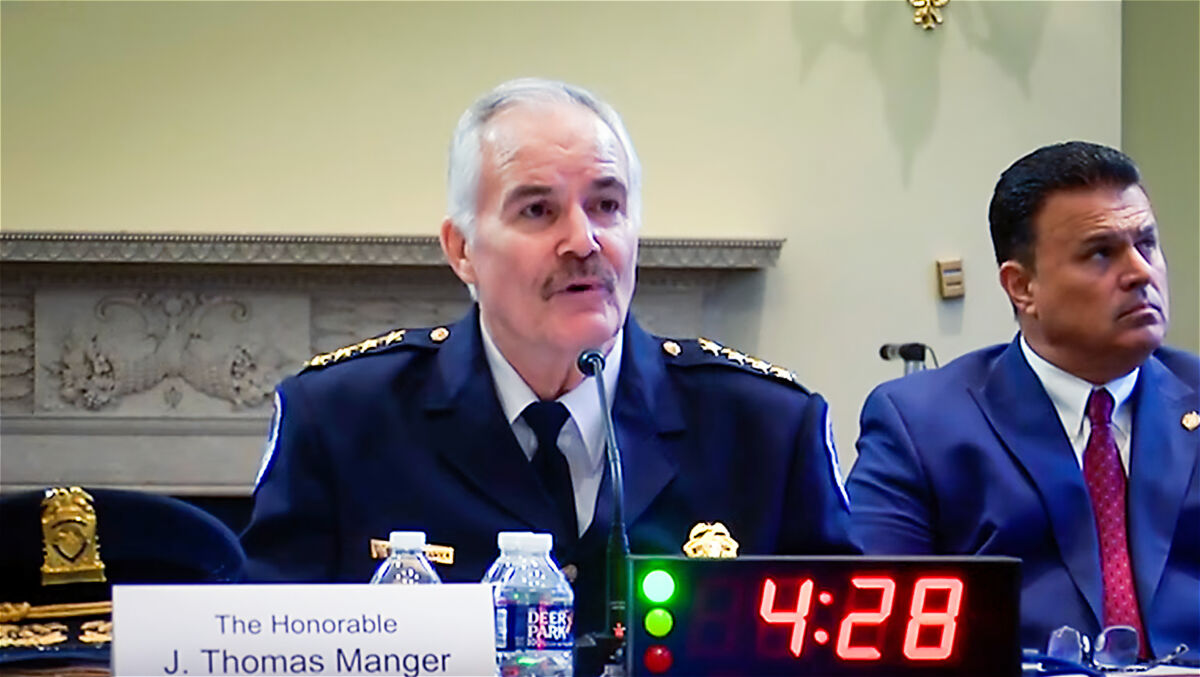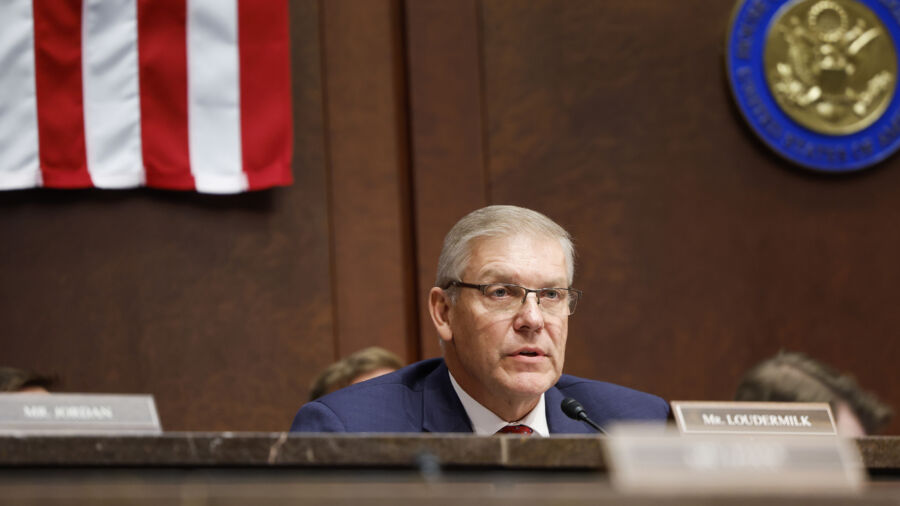Capitol Police continues to retaliate against employees who file whistleblower complaints with the Capitol Police Office of Inspector General, a U.S. House oversight panel was told on July 19.
“Numerous whistleblowers have come forward with claims of retaliation and abuse after speaking with the Office of Inspector General,” said Rep. Barry Loudermilk (R-Ga.), chairman of the Subcommittee on Oversight, Committee on House Administration.
At a hearing in the Longworth House Office Building, Mr. Loudermilk said the subcommittee isn’t ready to publicly address the latest allegations, but he wanted to be clear that “any retaliation is unacceptable.”
“While we review these allegations, we take all whistleblower reports seriously and appreciate their willingness to come forward,” Mr. Loudermilk said.
Prior to the January hiring of Ron Russo to replace Michael Bolton as the Capitol Police inspector general, Mr. Loudermilk said, “there were serious allegations of retaliation within the Capitol Police against whistleblowers who had spoken confidentially to a previous U.S. Capitol Police inspector general.”

Making his first appearance before the Subcommittee on Oversight, Mr. Russo said he has never disclosed the identity of a whistleblower at U.S. Capitol Police or in any previous job.
Rep. Anthony D’Esposito (R-N.Y.) asked Russo if he would ever disclose a whistleblower’s confidential information without their permission.
“We would protect that information at all costs,” Mr. Russo replied. “Super serious that people feel comfortable to come to us without fear of retaliation. So it’s a priority to make sure we handle that with great care.”
Mr. D’Esposito said the subcommittee had received information from whistleblowers who said they were punished for reporting problems inside Capitol Police to the Office of Inspector General.
“We’ve heard from multiple individuals in different hearings that have spoken to this committee alleging that the previous OIG received whistleblower information about intelligence failures on January 6 under former acting chief [Yogananda] Pittman,” Mr. D’Esposito said. “Subsequently, the individuals were placed on a performance-improvement plan and eventually forced out of the department.”
Mr. Russo said he was not aware of the details in those cases but added, “It’s one of the most important things we do to be able to protect these complainants and that any disclosure of that information is inappropriate. You want to protect them from retaliation.”

The USCP intelligence division formerly run by Ms. Pittman has been cited in numerous oversight reports for failing to share threat information with Capitol Police leadership and frontline officers before and on January 6.
“In your opinion, should the United States Capitol Police adopt specific policy to protect whistleblowers?” Mr. D’Esposito asked.
“Yes, if they don’t have a particular policy right now that speaks to that specifically, there should be,” Mr. Russo said.
Pension Deal Questioned
The circumstances surrounding Ms. Pittman’s departure from Capitol Police for a job at the University of California also prompted questions at the hearing.
Ms. Pittman became chief of police at UC Berkeley on Feb. 1 after announcing her retirement in November 2022. As part of a separation agreement she negotiated with Capitol Police Chief J. Thomas Manger, Ms. Pittman was placed on leave without pay from February 1 through mid-June so she could still qualify for a federal pension.
Mr. Manger disclosed Ms. Pittman’s pension deal at a May hearing of the subcommittee.
Mr. Russo said his office had done a “cursory review” of the arrangement, but he offered to investigate more.
Rep. Morgan Griffith (R-Va.) asked Mr. Russo to conduct an investigation of Ms. Pittman’s separation agreement. “I’m very concerned about it,” Mr. Griffith said.
“I have a hard time understanding how this is not some form of abuse of the system and maybe even a fraud,” Mr. Griffith said, “not by the chief of police, but by others, on the United States government and its system.”
From The Epoch Times

